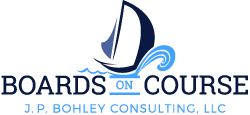Tip #36 Develop Successful Future Board Leaders
Begin by developing a board culture that supports the continued development of each and every board member and the board as a whole. In addition to a strong new board member orientation program, make continuing education opportunities available for each board member and for the board as a whole and expect participation in these opportunities. Make your commitment real by budgeting funds for this priority each year.
As part of your board’s overall commitment to continuing education, be proactive in preparing board members to assume and be successful in board leadership positions. Consider the following suggestions:
- Clearly state the board’s expectations for each board leadership position, that is, brief job descriptions for board officers and committee chairs.
- Seek out candidates for board chair, other board officers, and committee chair positions. Regularly, perhaps annually, encourage board members to express their interest in considering board leadership positions.
- Identify prospective board officers in advance to allow time for adequate preparation for assuming these roles. The person selected for a board leadership position should not be someone who reluctantly accepts the position because no one else seems interested in doing so.
- Once prospective board leaders are identified, provide one-on-one mentoring by experienced board members to enhance preparation for assuming such roles.
- Establish a vice-chair or chair-elect position to orient and prepare prospective chairs. Experience as committee chair can help prepare future board officers.
- If the term or maximum number of terms for your board chair is very limited, consider expanding these. Rapid turnover in the chair position can undermine effective board operations.
- Especially for the prospective board chair, make training and/or mentoring available in group dynamics and meeting facilitation if he or she is not already skilled in this area. Don’t expect board members who are inexperienced in conducting meetings to be able to succeed in this area without training and/or mentoring and practice.
In short, don’t expect board members to succeed in board leadership positions without adequate preparation. It’s not fair to them or to the board. Be proactive in establishing mechanisms that support the development of successful future board leaders.
For additional information about the Policy Governance® model, please click https://www.boardsoncourse.com/policy-governance.
